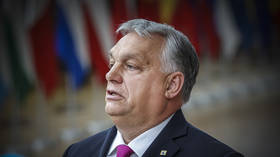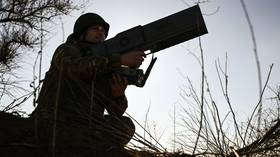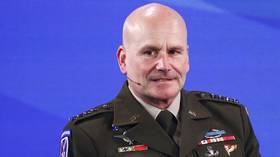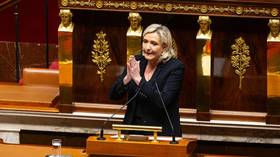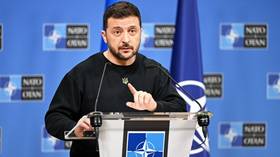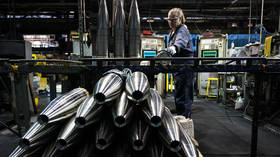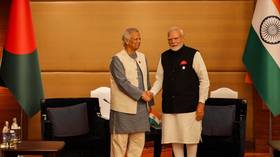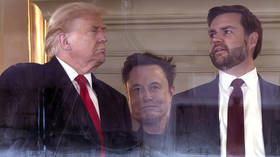NATO state calls for new European security architecture
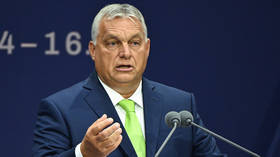
Hungary wants to see the creation of a new security architecture in Europe that would take into account both Russian and Ukrainian interests, Prime Minister Viktor Orban has said.
Speaking at the summit of the Organization of Turkic States in Astana, Kazakhstan, on Friday, the Hungarian leader stated that the West’s strategy of supporting Ukraine with money and arms had failed and, against this backdrop, Budapest was “advocating a plan B.”
The initiative, he continued, “is aimed at a ceasefire, peace negotiations and the construction of a new European security architecture that will be reassuring for Ukraine and acceptable to the Russians.” According to Orban, Türkiye, which has remained neutral in the stand-off between Moscow and Kiev while acting as a mediator between the two, could also play a prominent role in this potential arrangement.
Since the escalation in the Ukraine conflict, Budapest has consistently urged Kiev and Moscow to engage in talks, while also resisting calls to support EU sanctions against Russia, particularly in the energy sector, arguing that the measures are detrimental to the bloc’s own economy. In May, Orban also predicted that “poor Ukrainians” would not be able to prevail over Russia given the circumstances, particularly NATO’s reluctance to send its troops directly to the battlefield.
Hungary, along with Slovakia, also opposed a €50 billion ($53.5 billion) aid package to Ukraine that had was approved by the European Parliament last month. The two nations pointed in particular to concerns about corruption in Kiev and argued that the aid was not working.
While Moscow has never closed the door on talks with Kiev, Ukrainian President Vladimir Zelensky signed a decree last autumn barring all talks with Moscow, after four former Ukrainian regions overwhelmingly voted to join Russia.
In December 2021, shortly before the years-long Ukraine conflict moved to open fighting, Russia submitted proposals on security guarantees to NATO and the US, demanding that the West ban Ukraine’s accession to the military bloc and insisting that the alliance retreat to its borders of 1997. The overture, however, was rebuffed by the West.
Orban is not the only EU leader to have raised the prospect of security guarantees as hostilities continued. Last December, French President Emmanuel Macron suggested that Western capitals should consider setting up a security architecture that would take into account Russian interests, once Moscow and Kiev engage in talks. These remarks, however, triggered outrage, both in Kiev and in several EU member states.
